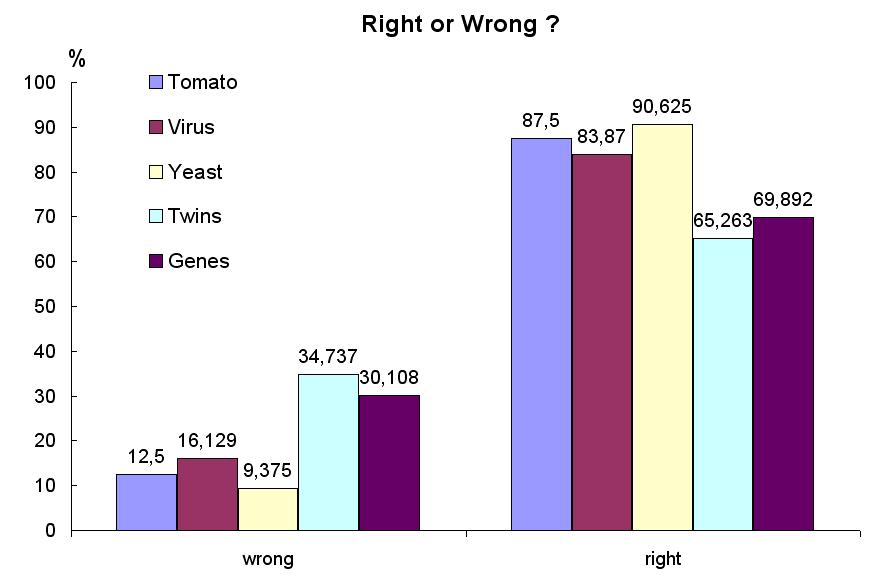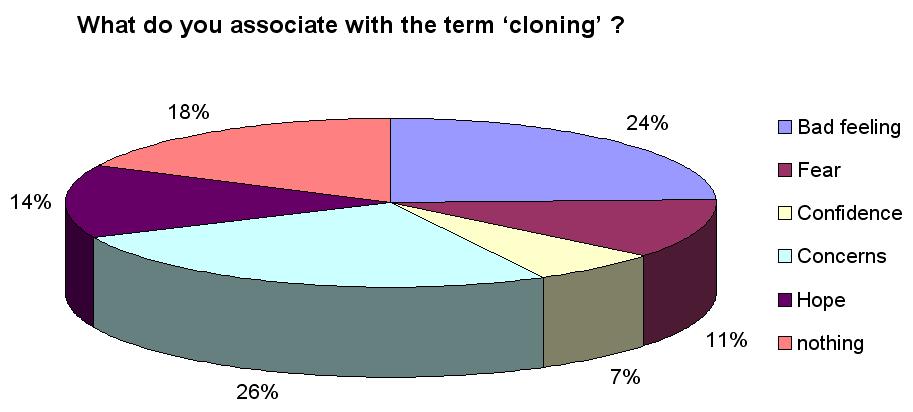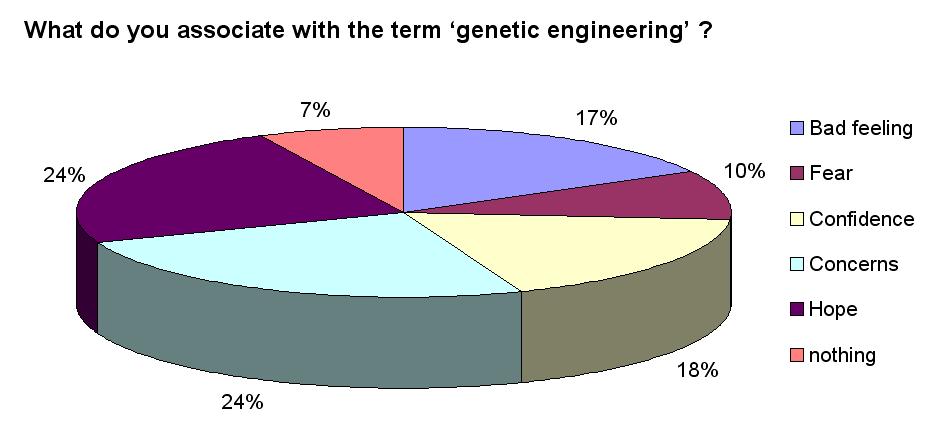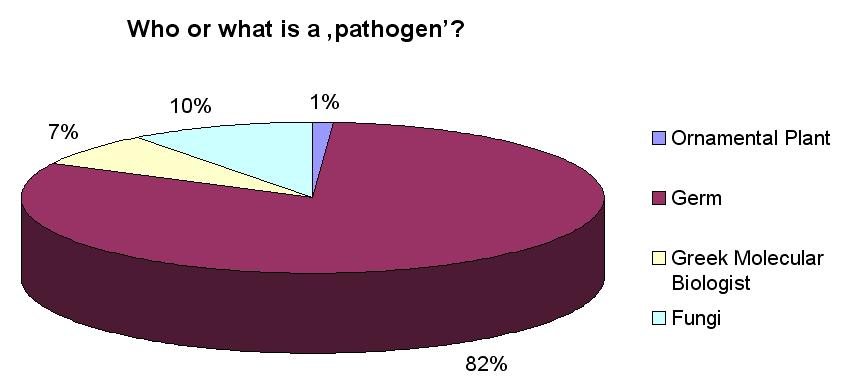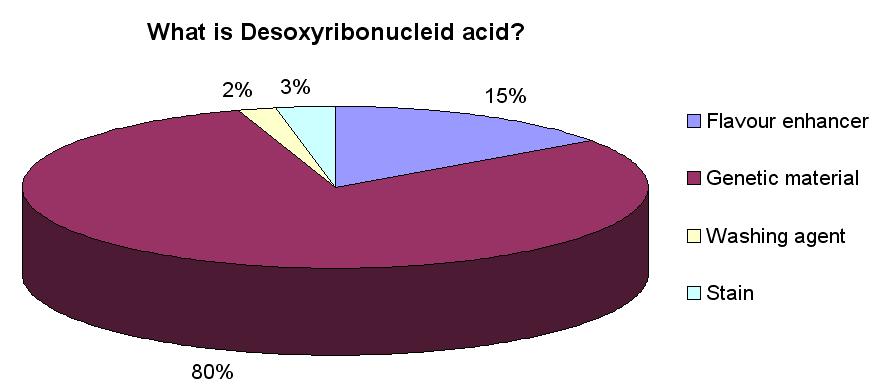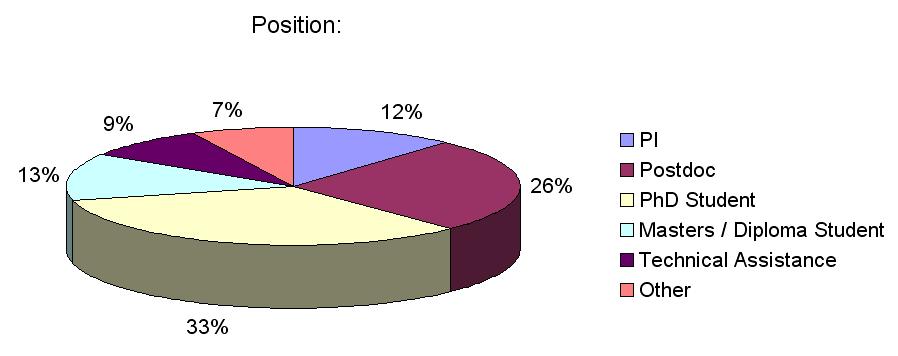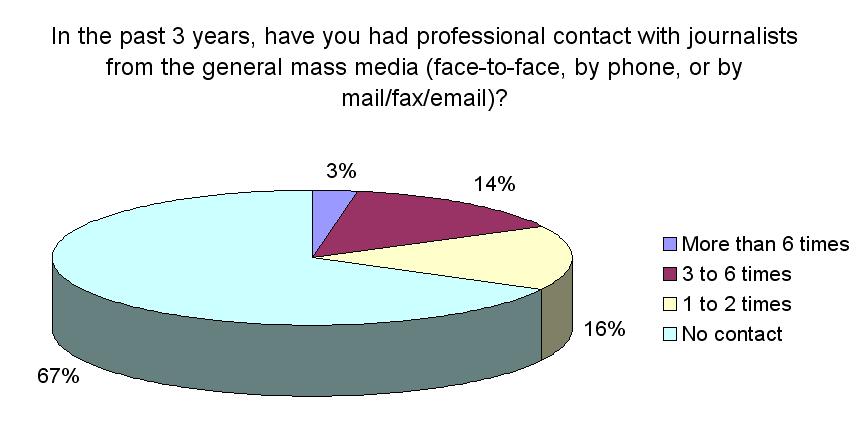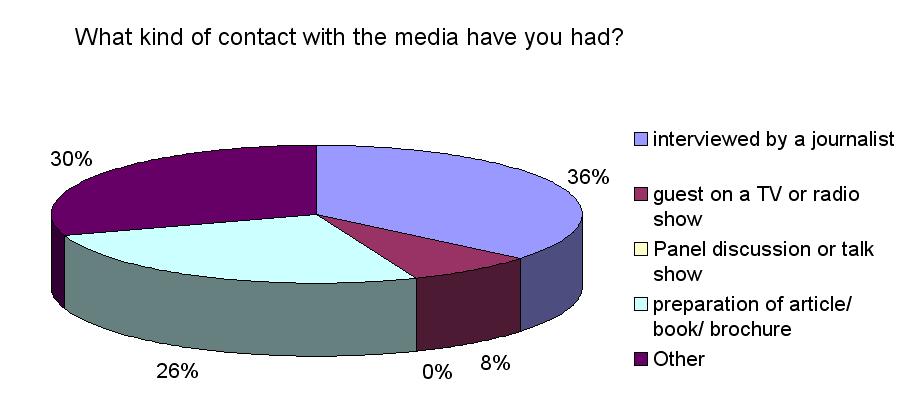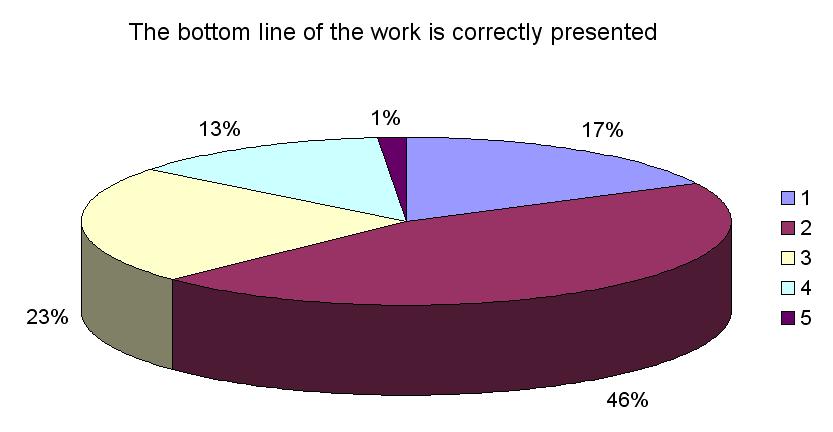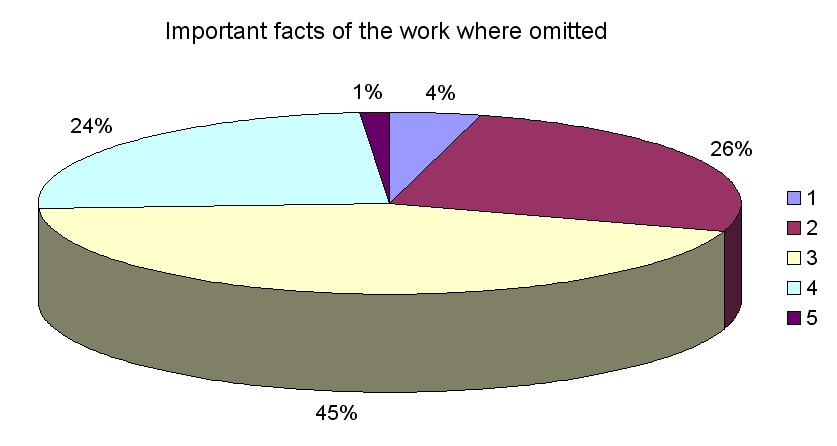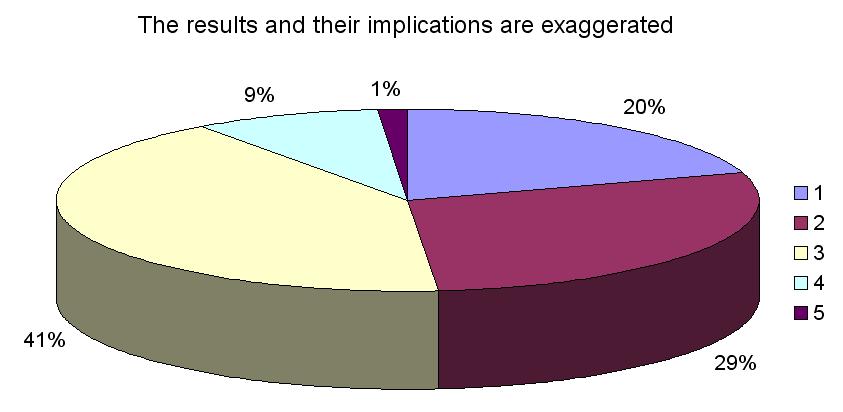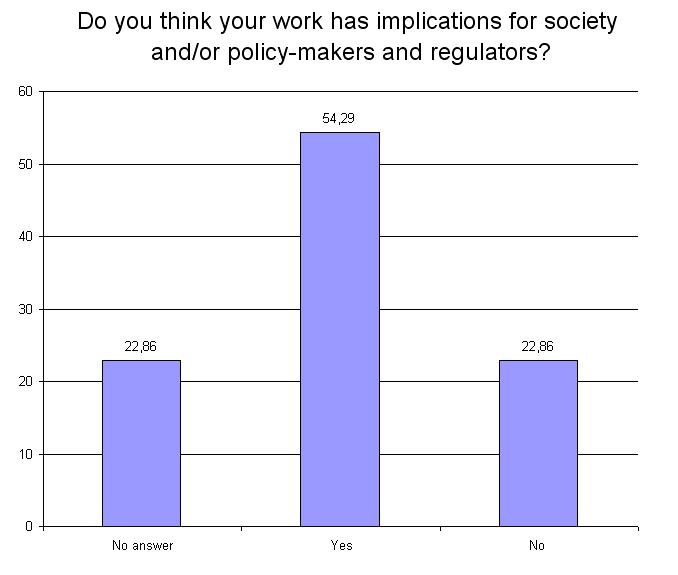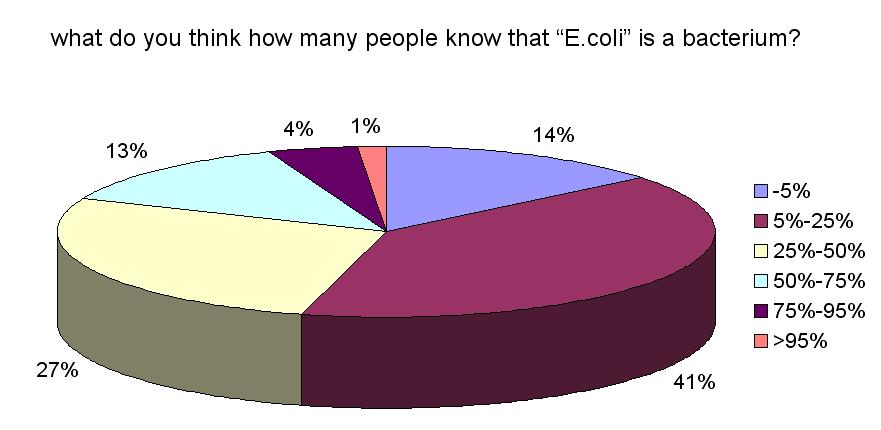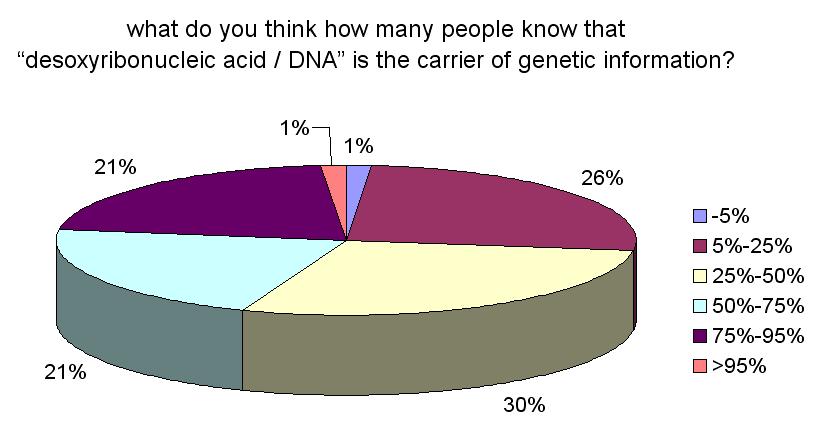Team:Heidelberg/Human Practice/Surveys
From 2008.igem.org


Survey-Public
On the 27th of September we carried out a survey in the pedestrian area of Heidelberg and asked 100 randomly picked people the following questions. The questionnaire of the survey is partly based on the evaluations of the European Union on Biotechnology [1], expanded and adapted for our purposes.
We wanted to get a feeling by the help of this survey for how much the public knows, generally about biology and biotechnology and about synthetic biology. To really get a quite representative answer, be decided to carry out the survey in the pedestrian area of Heidelberg, because we wanted to prevent asking only a certain audience when interviewing friends and family. The results of the survey should help us to decide at which level we should write the background information in the wiki and in information brochures, so everybody can really understand it.
|
(German) Beruf: Richtig oder Falsch? Was ist E.coli? Welche Assoziationen weckt bei ihnen der Begriff „Klonen“? Welche Assoziationen weckt bei ihnen der Begriff „Gentechnik“? Wer oder was ist „pathogen“? Was ist Desoxyribonucleinsäure? Was stellen Sie sich unter „synthetischer Biologie“ vor?
Haben sie in den letzten Monaten Berichte aus dem Themenbereich der Biotechnologie in den Medien (Internet, Zeitungen, Radio oder Fernsehen) verfolgt ? Wenn ja, zu welchem Thema?
|
(English) Job: Right or Wrong? What is E.coli? What do you associate with the term ‘cloning’ ? What do you associate with the term ‘genetic engineering’ ? Who or what is a ‚pathogen’? What is Desoxyribonucleid acid? What do you imagine ‘synthetic biology’ could be?
Did you track reports about issues of biotechnology on the media in the last months (internet, newspapers, radio or television) ? 1) No If yes, do you remember the topic? |
Results
Our results show that the public in Heidelberg is quite well informed about the most basic background of biology and biotechnology. For example, 87,5% knew, that ordinary tomatoes have genes (and not only genetically engineered ones). Only have of the European citizens answers this question right.
What we also can say is that they still are quite sceptical towards biotechnology in general. Two thirds of the interviewed answered, that they associate concerns or fear with the term genetic engineering (‘Gentechnik’). Only one fifth had positive associations like hope and confidence.
Unsurprisingly, only very few people - 5,2% - have already heard of 'synthetic biology' or can correctly describe what it means.
References
[1] Europeans and Biotechnology in 2005:Patterns and Trends, Ref. 244b , Wave EB64.3, http://ec.europa.eu/public_opinion/archives/eb_special_en.htm
Survey-Scientists
We are currently carrying out a survey asking 300 scientists of the Bioquant to answer the following questions. The questionnaire of the survey is based on several studies [1],[2], expanded and adapted for our purposes.
Field of research:
- Synthetic Biology
- Systems Biology
- Molecular Biology
- Cell Biology
- Translational Research
- Clinical Research
- Other: please specify
Position:
- PI
- Postdoc
- PhD Student
- Masters / Diploma Student
- Technical Assistance
- Other please specifiy
1. In the past 3 years, have you had professional contact with journalists from the general mass media (face-to-face, by phone, or by mail/fax/email)?
a. More than 6 times
b. 2 to 6 times
c. 1 to 2 times
d. No contact
2. What kind of contact with the media have you had? (Check all alternatives that apply.)
a. Been interviewed by a journalist
b. Been a guest on a TV or radio
c. Panel discussion or talk show provided background information for a popular article or program in the media
d. Participated in preparation of article / book / brochure addressed to general audience
e. Other, please specify
3. Judging reports about your field of work in press articles or other reports in other media, how do you think the science facts are represented: (1-5 accurate - bad)
a. The bottom line of the work is correctly presented.
b. Important facts of the work where omitted thereby hindering comprehension of the science behind
c. The results and their implications are exaggerated
4. Do you think your work has implications for society and/or policy-makers and regulators?
a. Yes
b. No
c. Don’t know / not sure
When carrying out a survey in the pedestrian area of Heidelberg,
5. what do you think how many people know that “E.coli” is a bacterium?
a. -5%
b. 5%-25%
c. 25%-50%
d. 50%-75%
e. 75%-95%
f. > 95%
6. what do you think how many people know what a “pathogen” is?
a. -5%
b. 5%-25%
c. 25%-50%
d. 50%-75%
e. 75%-95%
f. > 95%
7. what do you think how many people know that “desoxyribonucleic acid / DNA” is the carrier of genetic information?
a. -5%
b. 5%-25%
c. 25%-50%
d. 50%-75%
e. 75%-95%
f. > 95%
8. what do you think how many people can describe roughly what “synthetic biology” means?
a. -5%
b. 5%-25%
c. 25%-50%
d. 50%-75%
e. 75%-95%
f. > 95%
Results
Judging reports about your field of work in press articles or other reports in other media, how do you think the science facts are represented:
When carrying out a survey in the pedestrian area of Heidelberg,
References
[1] Science Communication, Interactions with the Mass Media, Science,Vol. 321. no. 5886, pp. 204 – 205, July 2008
[2] Science Communication, Report of the Royal Society, June 2006, http://royalsociety.org/page.asp?id=3180
 "
"

